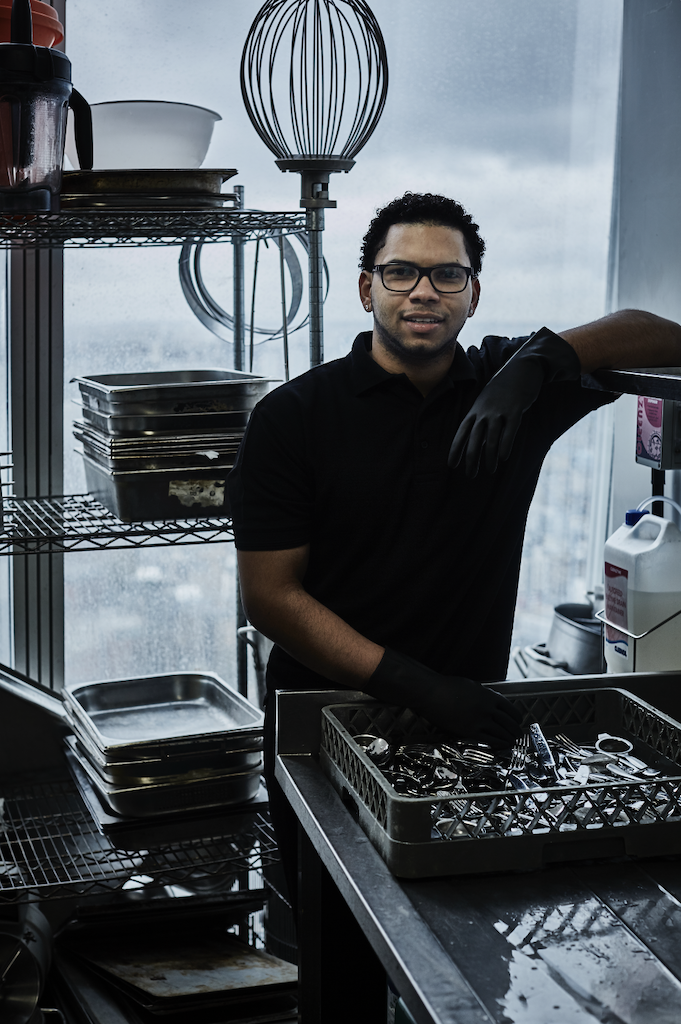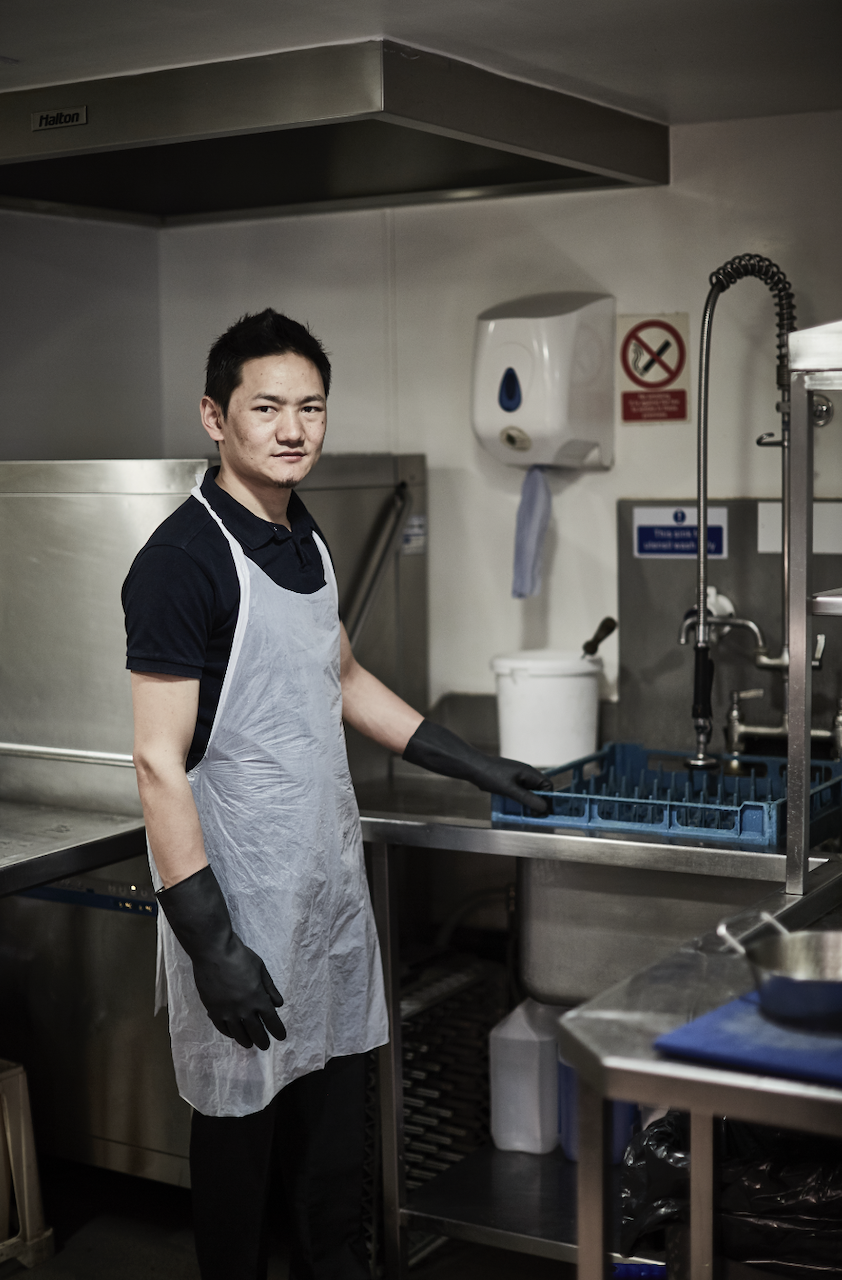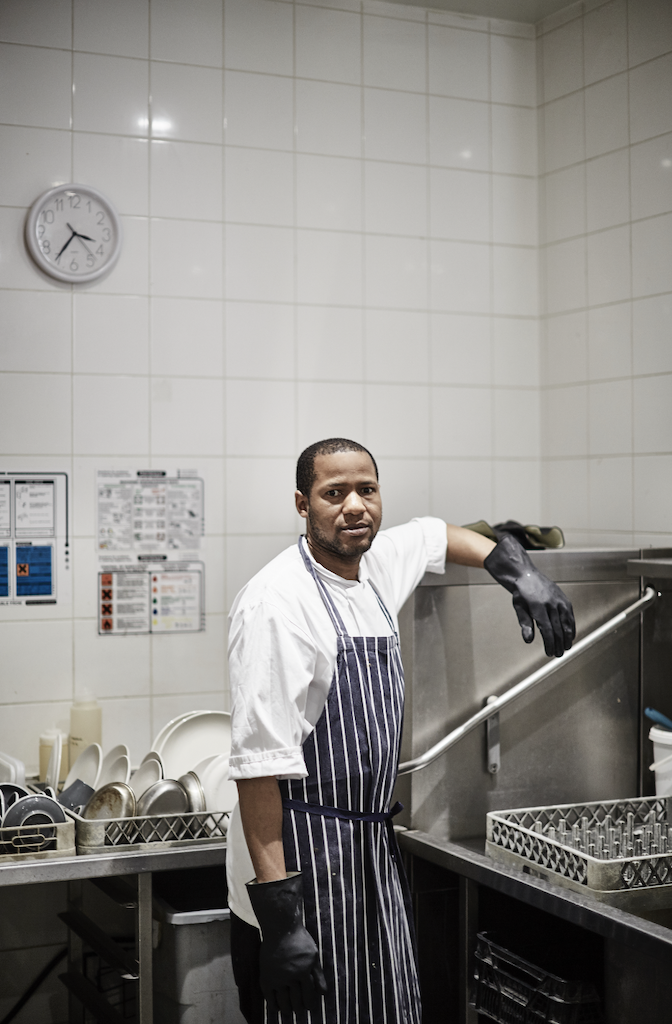Kitchen Porters - The Real Rockstars Of The Kitchen
They go by a myriad of names; KP’s, Dishies, Pot Washers, Underwater Ceramic Technicians; these lynchpins of the back of house are the indispensable unsung heroes of every kitchen brigade.
Whether a large crew at a big name joint or a small team in a local neighbourhood restaurant, the team that pumps out meal after meal, night after night must work together as a well-oiled machine, and the oil that makes those cogs glide is the men & women of the dish pit.
From the moment the kitchen springs to life each morning, they are there, up to their elbows in water, steam, dirty pots, pans, and utensils, taking hits again and again from the chefs as they constantly deliver dirty equipment to be scrubbed, washed, dried and returned ready to be used again for the next braise, sauce, garnish or soup. Often, as soon as a chef is done with a pot, another will need it cleaned straight away, ready for re-use due to the limited equipment of the kitchen and, often, the pot will be caked in food or, heaven forbid, the chef fuck up the recipe and burn the ass out of the pot, the KP will take it on board, and get the job done quickly and with a smile on their face. Once service begins, their job goes into overdrive, as they have to deal with the relentless pile of plates, cutlery, glassware and serving dishes dumped on the pit from the front of house.
Mercenaries who don’t know the word ‘no’, they’ll take on the most disgusting jobs with pride; cleaning out the bins, drudging out food waste with their hands from a blocked drain or climbing into the extraction fans at the end of the day’s service to wash out the built up grease. And then there is what’s known as ‘dishy’s hands’ – white, swollen, pasty and waterlogged from hours at the sink, cuts and burns sting with cleaning chemicals and soaps. No, it is not a pleasant job in any sense of the word.
I recall working with one of the most dedicated KP I’ve met, who was from China, called ‘Jimmy’. The colossal dishwashing machine broke down in the middle of a Saturday service. The water wasn’t pumping through properly, or so we concluded. Jimmy stepped up with an idea; ‘Jimmy go through the machine, Jimmy look for water. He then stripped down to his shorts, and we lay him prostrated across three dish racks and pushed him into the machine so he could inspect the water flow during the wash cycle. I will never forget him looking up at me before he slipped into the unknown, a serious dead look of fear and duty, eyes wide and locked on mine, and said, ‘Jimmy no do rinse cycle! ‘Jimmy no do rinse cycle!” The final rinse cycle of a commercial dishwasher runs at around 80 degrees Celsius. He fixed the water jets during the wash cycle. Jimmy, wherever you are these days, you are a fucking legend.
Unseen and unconsidered by the customers, there is not a chef worldwide who does not know the value of a good KP. In many establishments, the chefs will treat them like family, the bond and rapport one of mutual admiration, whether it be joking about a recent sexual conquest, learning some of their native tongues to communicate better, slipping them food throughout the service or making sure they have a beer at the end of service, without them, chefs know they can’t operate and treat them as such.
For some, washing the dishes is not all they do. They are often called upon to help with food preparation and service. Whether peeling 20kg of potatoes, dicing a mirepoix for stocks, picking herbs or serving up a dessert, they are there ready to do whatever is needed. I have had the pleasure of working with KPs who have taken the step up from the sinks, don the whites and begun their cooking career at the bottom of the ladder as commis chefs. A few of these I have watched evolve to become great chefs in their own right that I would happily have at my side in the trenches of any restaurant.
Familiar to their fellow kitchen troops yet mainly unknown to the outside world, many of these rock stars of the kitchen have incredible stories to tell. Some have fled trouble in their homeland, arriving in a distant city searching for a better life; others are on the run from more colourful pasts, many simply working hard to send money back to their families. Dig a little deeper, and you’ll be amazed at what drives them to undertake what can be such shitty work.
I worked in Canada many years ago with a Rwandan refugee called Cecil. Cecil had a perma-smile of white teeth that stretched from ear to ear, constantly singing and laughing, responding to every request with a ‘yes boss’; he was hands down one of the nicest, happiest dishy’s I have had the pleasure of working alongside. Cecil had a massive scar 6 inches long and an inch wide that ran across his head from ear to ear, where he had been hacked with a machete during the Rwandan civil war in the 1990s. His entire family had been hacked to death in front of him. Cecil, gaping head wound, pretended to be dead when the second team, or ‘finishing squad’ of Hutus, as he called them, came through the village to kill anyone still alive. He fled to Canada. He was happy because he was alive, he would say. Whenever I feel down, I remember Cecil. Perspective.
Many people can’t stand doing dishes. How many of us have lived in share houses where the sink is constantly piled high with dishes? Next time you go for dinner, when your server clears the table and asks, ‘Are you all done?’ Raise a glass for the rock star about to wash your plate. You sure as hell don’t want to do it.
All Images by Steve Ryan https://steveryanphotography.com/



